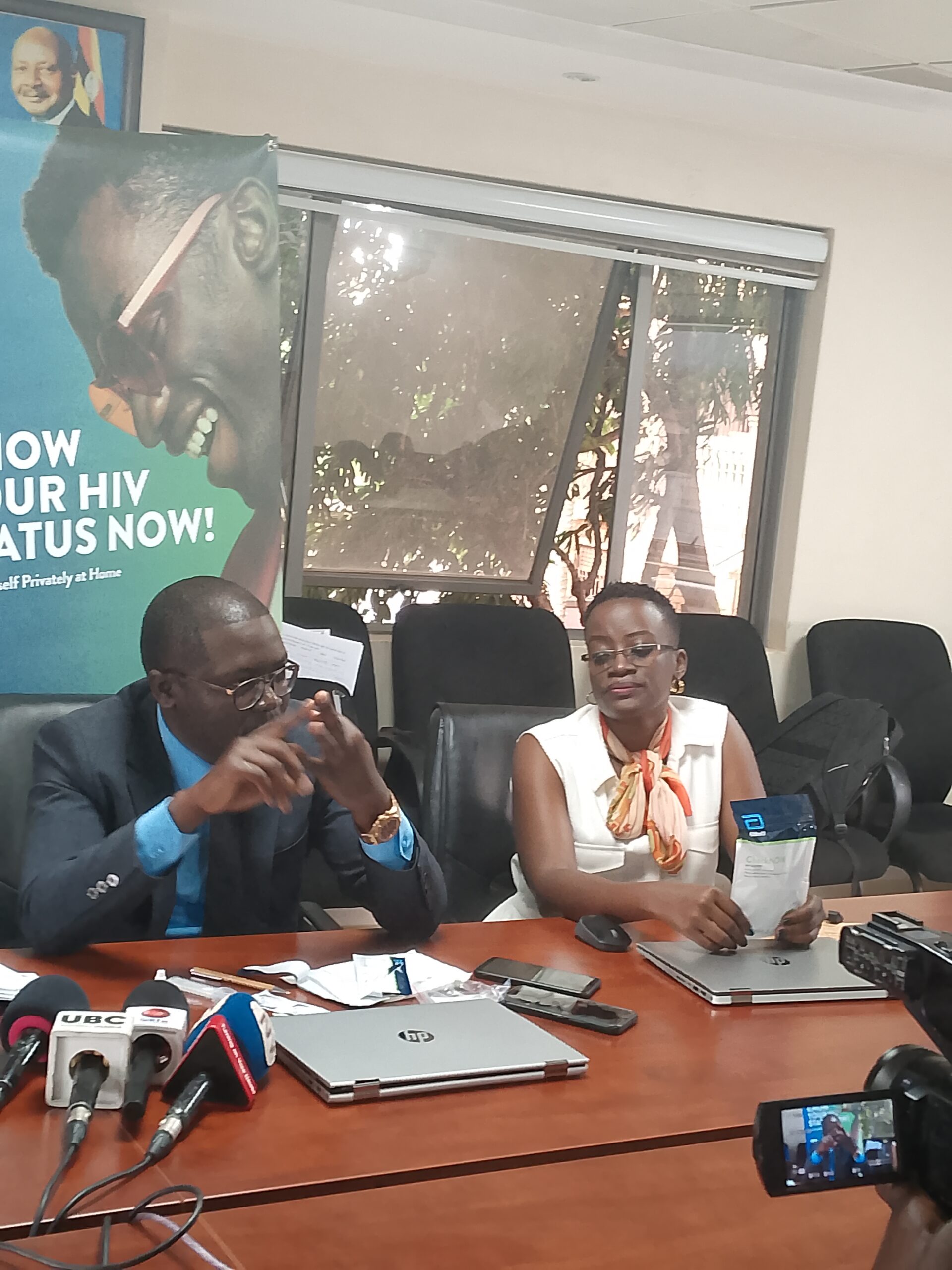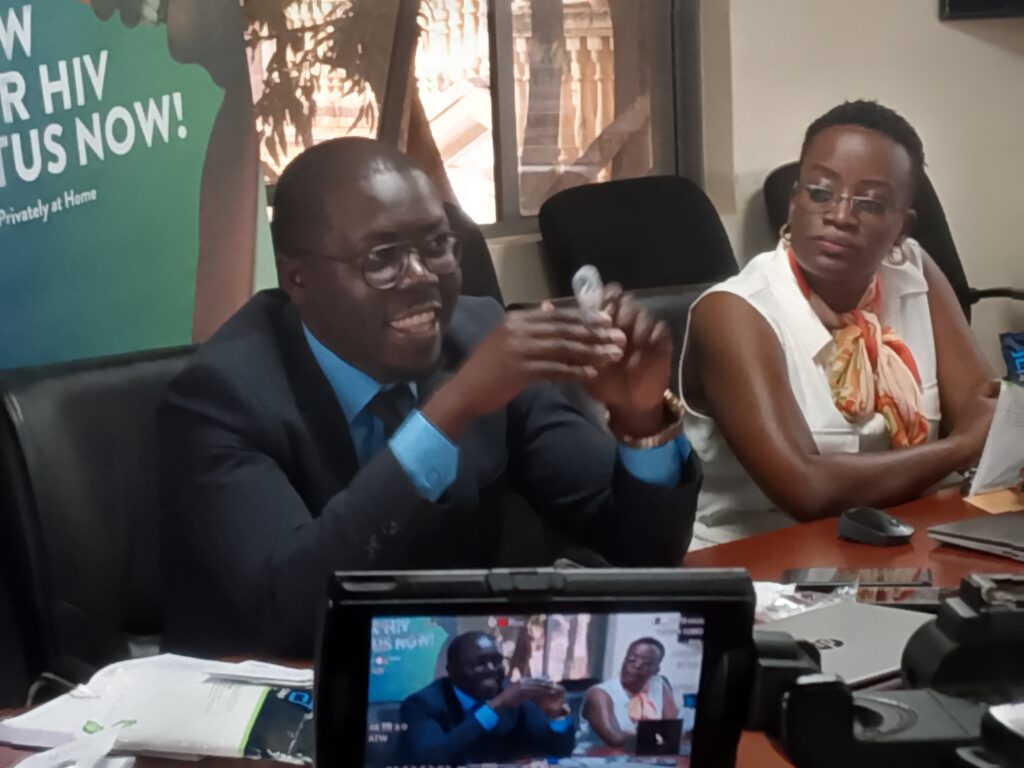
 Mama FM
Mama FM

 Mama FM
Mama FM
7 May 2024, 3:21 pm
By Byamukama Alozious
This innovative self-test kit, approved by the World Health Organization, aims to empower Ugandans to know their HIV status, thereby contributing to efforts to curb the spread of the HIV/AIDS epidemic.
During an orientation session for journalists this morning, Andrew Buunya from Life Care Diagnostics highlighted the effectiveness of the third-generation CheckNow technology. This technology enables earlier detection of HIV infection and delivers accurate results within just 15-20 minutes using a simple finger stick.
The Technical Committee on AIDS Control Program, Ministry of Health, announced that the national HIV testing campaign utilizing this technology will be officially launched on Thursday at the Kololo Ceremonial Grounds in Kampala, with President Yoweri Kaguta Museveni presiding over the event.
Dr. Christine Katusiime, from the AIDS Control Programs at the Ministry of Health, emphasized the importance of using the kits within seven days to ensure prompt feedback. She noted that while the kits have a long storage capacity, timely usage is crucial for gathering feedback data efficiently.

Recent data from the Uganda Population-based HIV Impact Assessment (UPHIA) 2020 revealed that 11% of individuals living with HIV in Uganda were unaware of their status. However, by the end of 2023, the program data showed significant improvements, with only 6% of people living with HIV unaware of their positive status. Notably, gaps in reaching the first 95% were observed among men, young people aged 15-24, children, key and priority populations, and in specific geographical locations.
Dr. Katusiime emphasized that young people and key populations account for a significant portion of new HIV infections. Therefore, integrating HIV testing, including rapid diagnostic tests (RDTs) and novel HIV self-testing approaches, is crucial for addressing gaps in the first 95%.
The Ministry of Health aims to bridge the HIV testing gap in underserved populations, including per-community and key populations, through HIV self-testing in 146 districts within 12 months. The objectives include increasing knowledge of HIV status among people living with HIV, strengthening linkage to prevention and treatment services, and mitigating stigma associated with HIV testing through the promotion of the simple and effective CheckNow self-test kit.
To facilitate this initiative, the ministry plans to train and mobilize Community Health Extension Workers and Village Health Teams in administrative facilities. These workers will be responsible for mobilizing communities, distributing HIV testing kits, and providing support services.
The program will be implemented in 46 districts within 12 months, with a focus on Health Center IIs and Health Center IIIs, as well as communities. The estimated target population of 5,087,148 will be reached with self-testing services in 1,488 sub-counties, 190 town councils and townships, 7,553 parishes, 58,197 villages, and 30 landing sites on lakes in Uganda. The initiative will prioritize reaching one million motorcycle riders, the majority of whom are in Kampala, along with 120,000-150,000 bicyclists, and landing sites on various lakes including Lake Victoria, Lake Kyoga, Lake Albert, Lake George, and Lake Edward.
In terms of gender statistics, out of 1.4 million people living with HIV, 860,000 are women, and 80,000 are children. The prevalence among young people aged 15-24 is estimated at 4.2% for women compared to 2.4% for men, according to a 2013 UNAIDS report.
Uganda has made significant strides in preventing mother-to-child transmission (PMTCT), leading to a dramatic reduction in HIV infections among newborns by 77%, from 20,000 cases in 2010 to 5,900 cases in 2022.